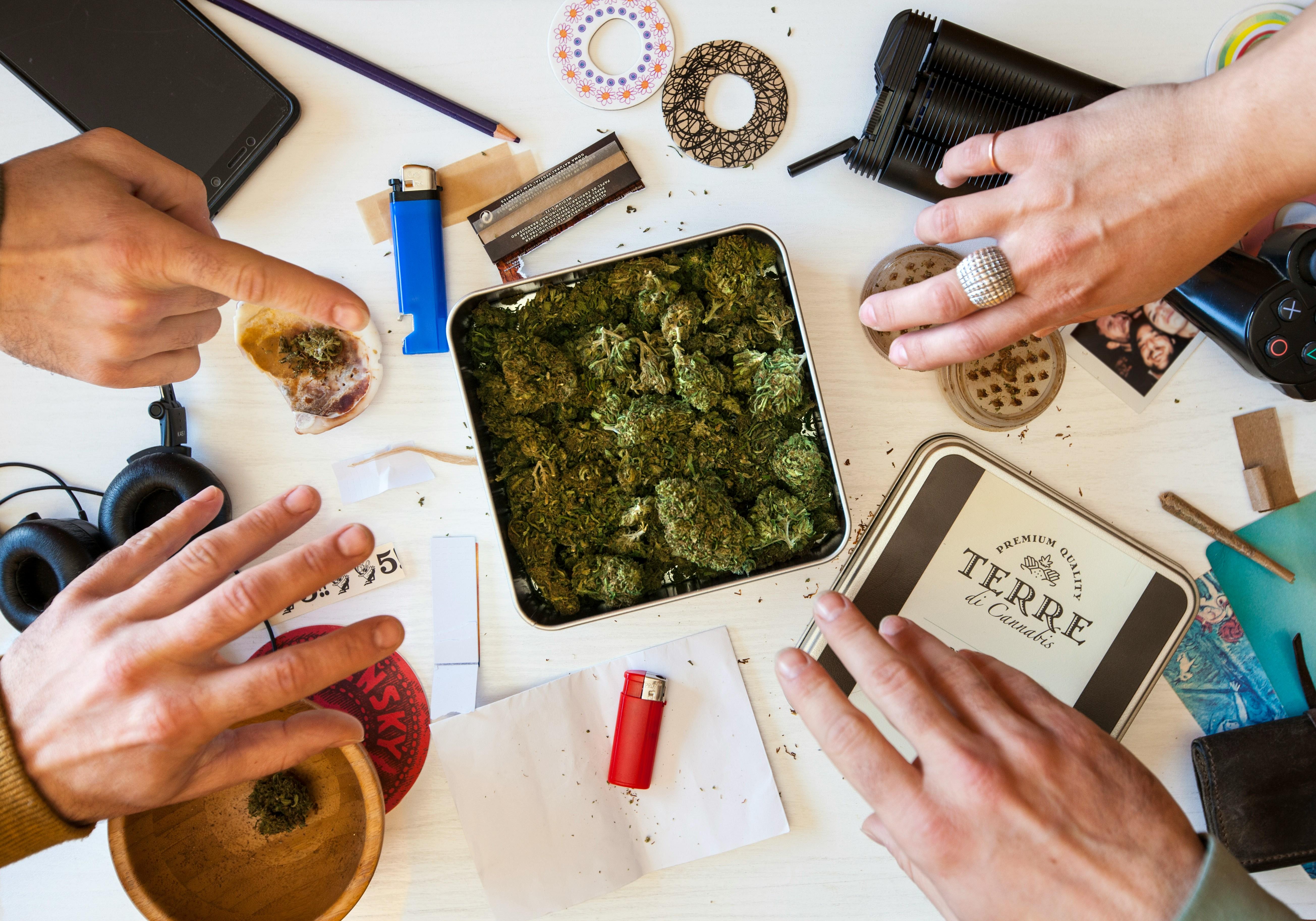social-media-vs-cannabis
Posted on November 14, 2024

Navigating the Challenges of Social Media for Cannabis Brands
For cannabis brands, social media represents a powerful tool to build awareness, foster community, and connect directly with consumers. However, unlike most industries, cannabis brands face unique challenges due to the strict regulations and policies governing content on popular platforms like Instagram, Facebook, and TikTok. While traditional marketing can be challenging enough in the cannabis space, social media presents an even trickier landscape that can often feel like a moving target.
1. Strict Content Policies and Platform Restrictions
Social media platforms, particularly Instagram, Facebook, and TikTok, have stringent policies that restrict or outright ban content promoting cannabis, even in states where cannabis is legal. Facebook and Instagram, owned by Meta, do not allow brands to directly promote cannabis sales or consumption, resulting in frequent content takedowns, account suspensions, and shadow-banning (where posts are visible to fewer people without notification). For cannabis brands, this makes it difficult to create reliable visibility, limiting organic reach and audience engagement. TikTok, with its massive young audience, is even stricter, actively removing accounts with content that appears to promote cannabis use.
2. Limited Paid Advertising Options
Cannabis brands are generally barred from traditional digital advertising options on major platforms like Google Ads, Facebook Ads, and Instagram Ads, which are crucial for reaching a targeted audience and driving growth. This limitation forces brands to rely heavily on organic content strategies, influencers, and collaborations, which are challenging to scale consistently. Brands that attempt to promote cannabis indirectly through sponsored posts with influencers often find themselves facing content rejection or account restrictions.
3. The Risk of Account Suspension or Deletion
For brands that operate on social media, account stability is key. However, cannabis brands risk account deletions and suspensions for content deemed non-compliant by platform algorithms and moderators. For example, accounts may be flagged for content that shows or mentions cannabis products—even if it’s educational rather than promotional. The unpredictability of account stability means brands must continually rebuild followers or invest in backup accounts, both of which drain resources and make it difficult to establish a consistent brand presence.
4. Navigating Community Guidelines and Legal Gray Areas
Since cannabis legalization varies by state, social media platforms follow federal guidelines, prohibiting content that “encourages drug use.” This blanket approach does not differentiate between legal cannabis use in states where it's permitted and illegal use, creating a challenge for brands operating in the legal market. Brands must tread carefully when discussing or showcasing products, often resulting in content that is overly cautious or veiled, which can weaken brand messaging and engagement.
5. Alternative Strategies and Creative Content Solutions
Cannabis brands are finding creative ways to navigate these restrictions. Some focus on educational content that does not directly reference products but highlights topics like the science behind cannabis, its health benefits, and lifestyle integrations. This strategy, while not as direct, can create brand loyalty and educate followers without risking violations. Another approach involves leveraging platforms like Reddit or Twitter (X), which are less restrictive and allow more open discussions about cannabis, though they don’t have the same visual engagement as Instagram.
Brands are also increasingly turning to influencer partnerships with individuals who have a dedicated following in the cannabis community. However, even influencers face risks of having content removed, so brands often work with influencers in states with clear legal guidelines, and even then, indirectly mention products or rely on creative euphemisms for cannabis.
6. Building Community and Trust Despite Restrictions
Despite these barriers, the cannabis industry has fostered a strong, passionate community on social media. Many brands focus on cultivating trust and connection, often using comments, stories, and live streams to interact directly with followers without triggering algorithmic content flags. This community-driven approach allows brands to establish loyalty and create brand advocates who share their message organically. Some brands also create exclusive content for followers, such as hosting private events, offering informational webinars, or building their own social communities through apps like Buddy: The Cannabis App or through email lists.
The challenges of social media marketing for cannabis brands push companies to get creative in ways that few other industries experience. As legalization continues to expand, it’s possible that platform policies will eventually adapt to the new regulatory landscape. Until then, cannabis brands continue to develop innovative strategies to engage their audiences, fostering a resilient community and reshaping the industry’s digital footprint.